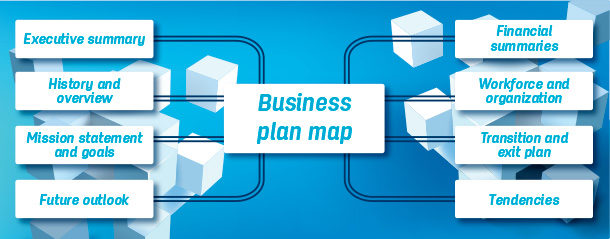It establishes the goals you want to achieve while also outlining how your past has brought you to where your business is now.
During a business planning roundtable meeting hosted by Pennsylvania’s Center for Dairy Excellence and Penn State Extension, Andrew Sandeen of Penn State Extension addressed why creating a business plan is vital to your operation as well as how to go about creating one.
What will a business plan do for my dairy operation?
Creating a business plan is important to any business because this shows where you are right now and what your team needs to achieve for future success. According to Sandeen, “Business plans help to create a road map for your dairy’s future.”
Goals for starting your business plan are:
- Gain a better understanding of the importance of business planning.
- Know the key items that contribute to a business plan.
- Gain familiarity with resources to help with the planning process.
Sandeen noted that while business planning helps dairy farmers to understand their dairy operations, it is not something that should sit on a shelf and be regarded as the final word.
“A business plan is a living document. It helps us deal with change in our operations,” he said. “It is not something to be locked away in a filing cabinet. It can help us realize what our goals are and if we have reached the previous goals set.”
As plans change, people change and the world changes, it is important the financial plan for your dairy can change with them.
Where do I start to create a business plan?
Though creating a business plan is for the betterment of your operation, it is still a lengthy and in-depth process. Creating your business plan should not be a daylong or even a weeklong event, but something that is put together over months to ensure there are no missing pieces. Before starting the plan, Sandeen shared three questions to ask yourself about your dairy business:
1. What are some key issues that will determine future success?
2. What are some past successes that can provide a foundation for your future?
3. Looking to the future, what are some unexpected events that could positively or negatively impact your dairy?
“When developing a plan, the process is just as important as the plan itself. The process of working with advisers outside of the operation can help guide you toward the future and establish the soundness of the plan,” Sandeen added.
The business planning process is also effective in bringing your whole farm team together. Often, your team may be working separately on different tasks throughout the business with no chance for communication. Bringing your family and employees together can bring about new ideas and goals for the future. Creating a business plan and revisiting it will also keep the farm and its decision-makers on track and on the same page.
“One important part to a business plan is to be working with accurate data to get a good picture of where your business is today and where it needs to go in the future,” shared Sandeen. Accurate data, such as DHI records and financial statements, are crucial to creating an effective business plan. If key pieces of data are inaccurate, the whole plan will be inaccurate.
What goes into a business plan?
Sandeen suggested separating your business plan into small sections to make sure your data is accurate and you don’t get overwhelmed with all of the details. It is also important to ask for guidance from outside consultants such as your financial adviser. They can help you build a business plan that is separated into eight sections:
- Executive summary – Gives a quick overview of the farm and includes a brief summary of the rest of the plan.
- History and overview – Includes pictures and a timeline of how the farm has evolved over the years. It gives the person reading a feel for the family and the farm.
- Mission statement and goals – Tells what is important to the business’s values and future. These are important for customers but also for your team to remember what is important to your dairy business.
- Future outlook – This is important for any future planning and will force you to make changes in your business. As Sandeen mentioned during the meeting, the milk market doesn’t need to be as big of a mystery if you look at the futures markets.
- Financial summaries – Includes a financial analysis and a balance sheet. It can also be helpful to add graphs and to consult with a financial adviser to help make sense of your financial situation.
- Workforce and organization – Gives a feel for how your business functions, how your employees are structured and the types of responsibilities your team and partners manage.
- Transition and exit plan – Shows what your business’s plan is for exiting from the industry or transitioning the operation to the next generation. Sandeen reminded attendees that every business does have a life cycle.
- Tendencies – Includes any other factors that are important to your business and its goals.
Ultimately, business plans are essential to your future success and help you understand both the big picture and the finer details of your dairy operation. It can also equip you and your team with the road map you need to navigate change.
“Change happens, whether we want it to or not, in all farms and operations,” said Sandeen. “We can’t control changes, but we can control how prepared we are to deal with these changes.” ![]()
Kylie Lusk is the 2021 communications intern with Pennsylvania’s Center for Dairy Excellence.
-
Kylie Lusk
- Communications Intern
- Center for Dairy Excellence






